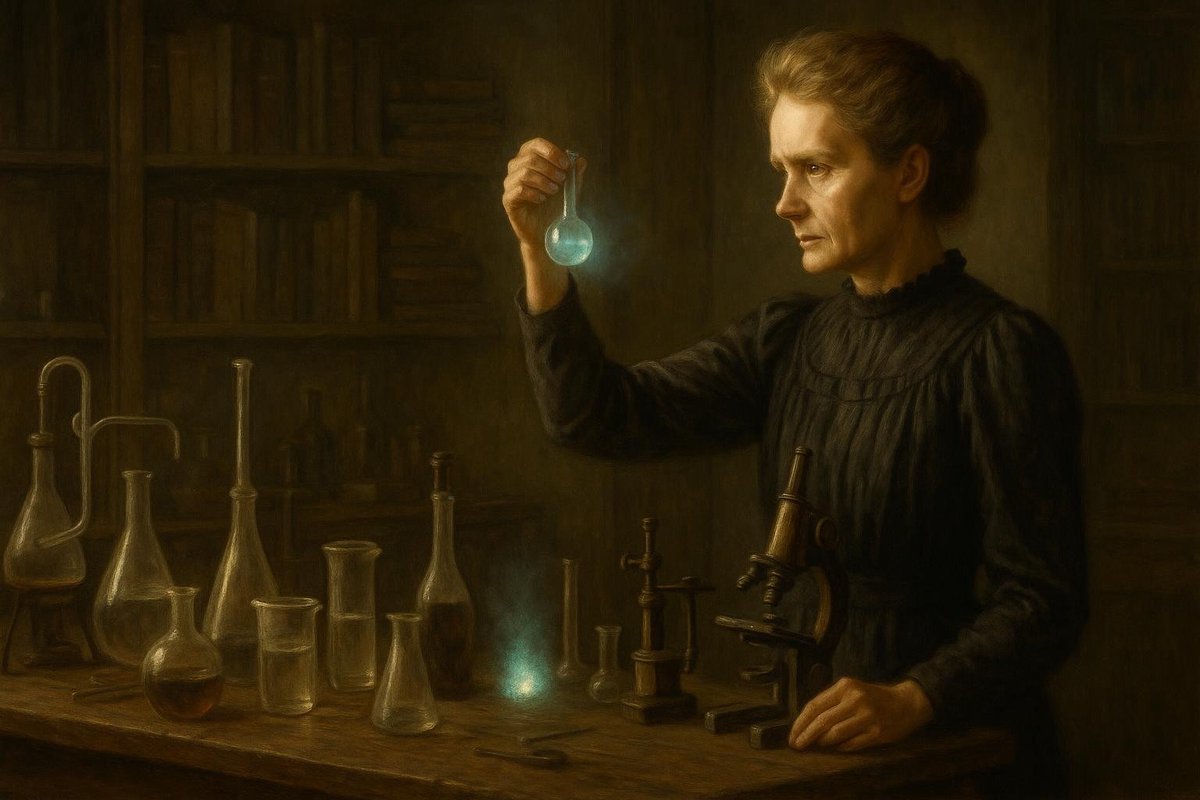
Have you ever wondered what drives some of the greatest minds to make history? In the case of Marie Curie, her relentless curiosity and dogged persistence were her guiding stars. Imagine a time when the concept of radioactivity was as mysterious as the dark side of the moon. Curie’s journey was one marked by inspiration, struggle, and an unyielding quest for knowledge that changed science forever.
Early Influences: The Spark of Curiosity
Marie Curie’s early life in Poland was steeped in an atmosphere of learning and resilience. Born in 1867, Curie grew up in a politically charged environment under Russian rule. Many people believe that her early exposure to both education and adversity shaped her inquisitive nature.
- Attended a clandestine ‘Floating University’ for women in Warsaw.
- Exposed to science and learning from her father, a teacher of mathematics and physics.
Interestingly, her father’s influence introduced her to the world of science. Despite financial hardships, Curie’s family prioritized education. No wonder she developed a hunger for knowledge! Her journey to Paris to study at the Sorbonne was a pivotal step, thrusting her into a world teeming with scientific possibilities. As time goes on, it’s clear these early experiences laid the foundation for her future triumphs.
Mental Models: Seeing the Unseen
Curie’s intellectual style was unique for her time. She was not just a scientist but a visionary who saw beyond the visible spectrum. Her approach to studying radioactivity was methodical yet imaginative. Of course, her groundbreaking discovery of polonium and radium did not happen overnight.
- Coined the term ‘radioactivity’, changing the scientific discourse.
- Developed new techniques to isolate radioactive isotopes.
Curie spent countless hours in her laboratory, a testament to her dedication. Many people believe her success lay in her ability to think beyond the conventional boundaries of science. By peering into the unseen, she paved the way for future generations of scientists. Her mental model was one of persistence and adaptability — a true hallmark of a scientific pioneer.
Challenges & Resilience: Battling the Elements
Life as a female scientist in the early 20th century was far from easy. Curie’s journey was fraught with significant challenges, yet her resilience shone through. She faced skepticism and discrimination in a male-dominated field but never wavered from her path.
- Worked in poor conditions, often with inadequate resources.
- Despite being the first woman to win a Nobel Prize, faced gender bias.
Curie’s story is one of triumph over adversity. Her determination was unparalleled, pushing the boundaries of what was possible for women in science. Isn’t it inspiring how she turned obstacles into stepping stones for success? Her resilience serves as a beacon for those who dare to tread uncharted waters.
Legacy: A Lasting Impact on Science
Marie Curie’s legacy is as radiant as the elements she discovered. Her pioneering research has had a profound impact on science and medicine, saving countless lives and opening new avenues of research.
- Won two Nobel Prizes, a testament to her invaluable contributions.
- Established the Curie Institutes, focusing on medical applications of radioactivity.
Her work not only revolutionized our understanding of radioactivity but also influenced fields like nuclear medicine. Curie’s legacy continues to inspire scientists around the world. How many lives have been touched by her discoveries? It’s a question that reminds us of the power of one person’s determination to change the world.
Fuel Someone Else’s Curiosity
Marie Curie’s story is a reminder that curiosity, coupled with persistence, can lead to extraordinary discoveries. If her journey inspires you, share her story with others. Discuss her achievements and the impact of her work. By fueling someone else’s curiosity, you keep the spirit of scientific inquiry alive. Isn’t it incredible how one person’s curiosity can spark a chain reaction of innovation? Let’s continue to celebrate and encourage the curious minds among us.

Leave a Reply